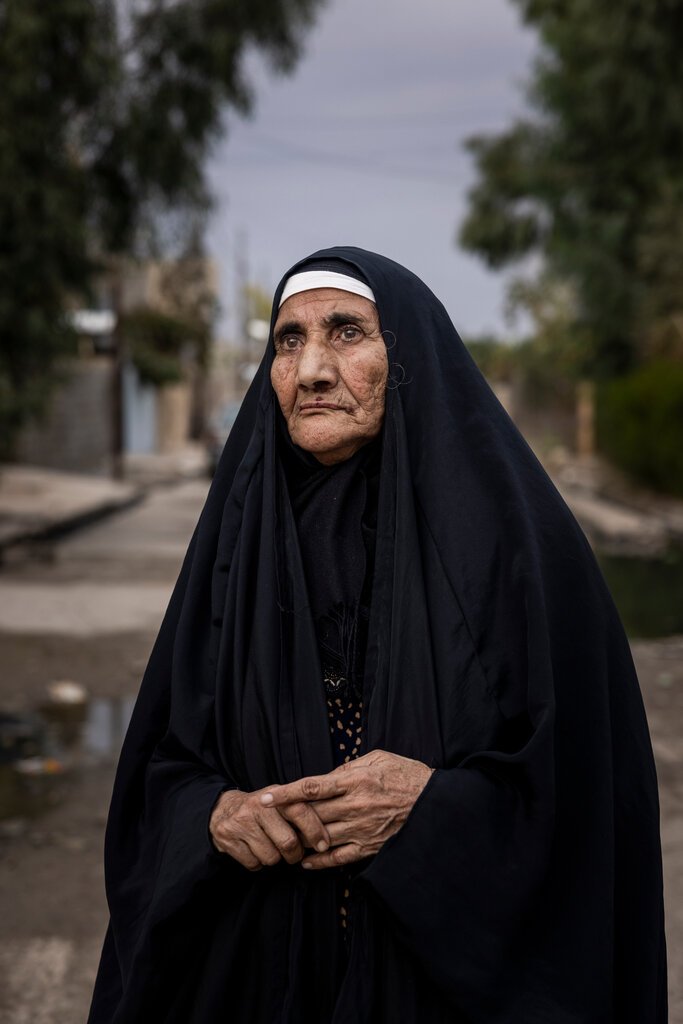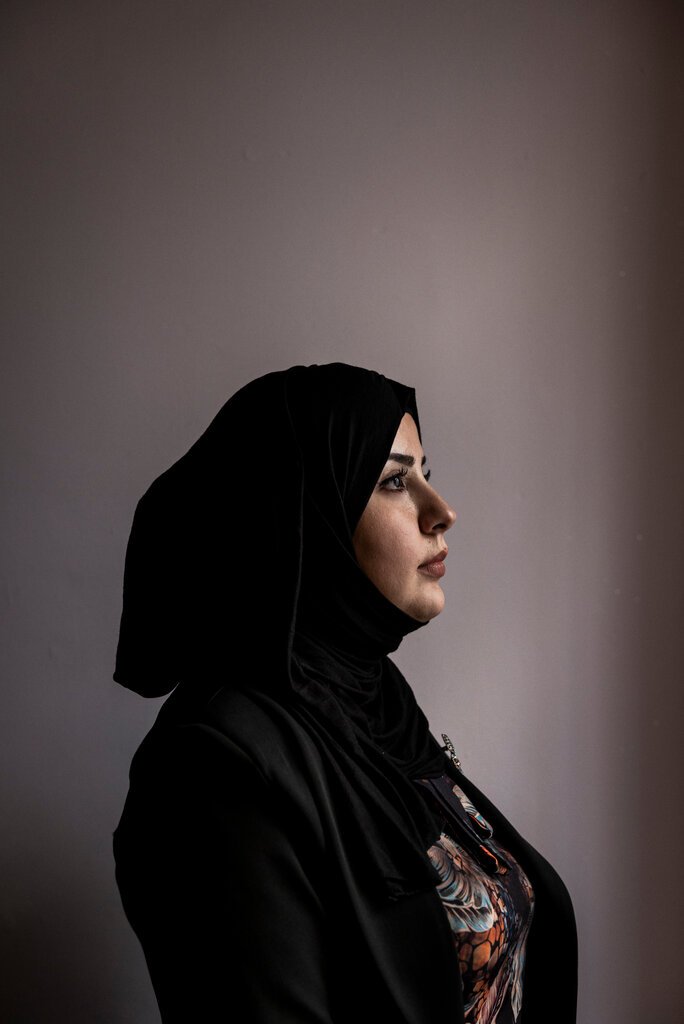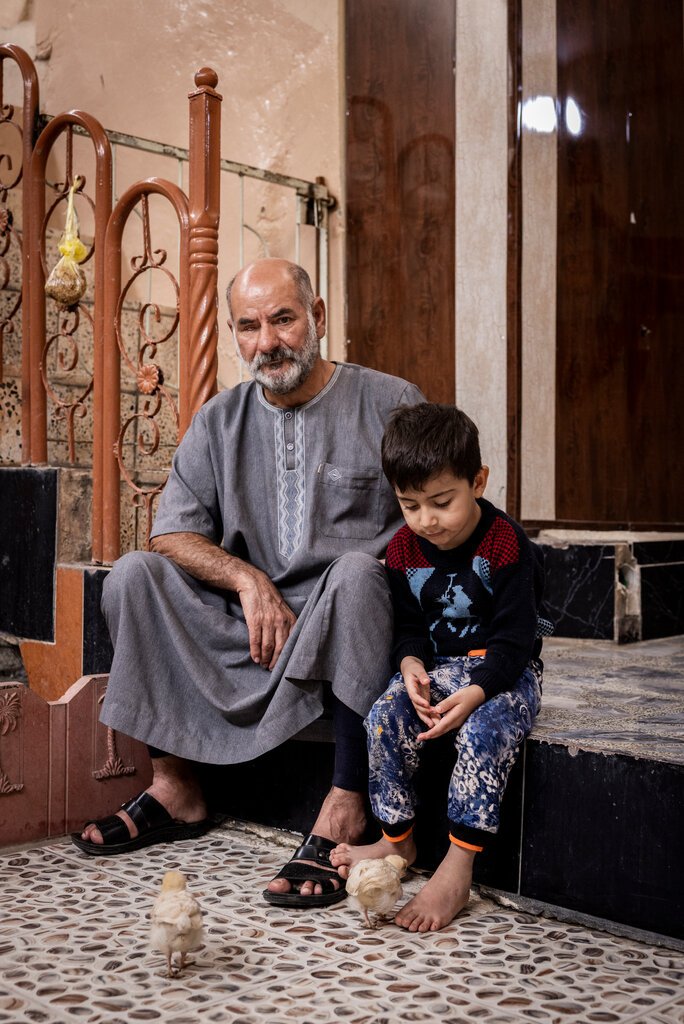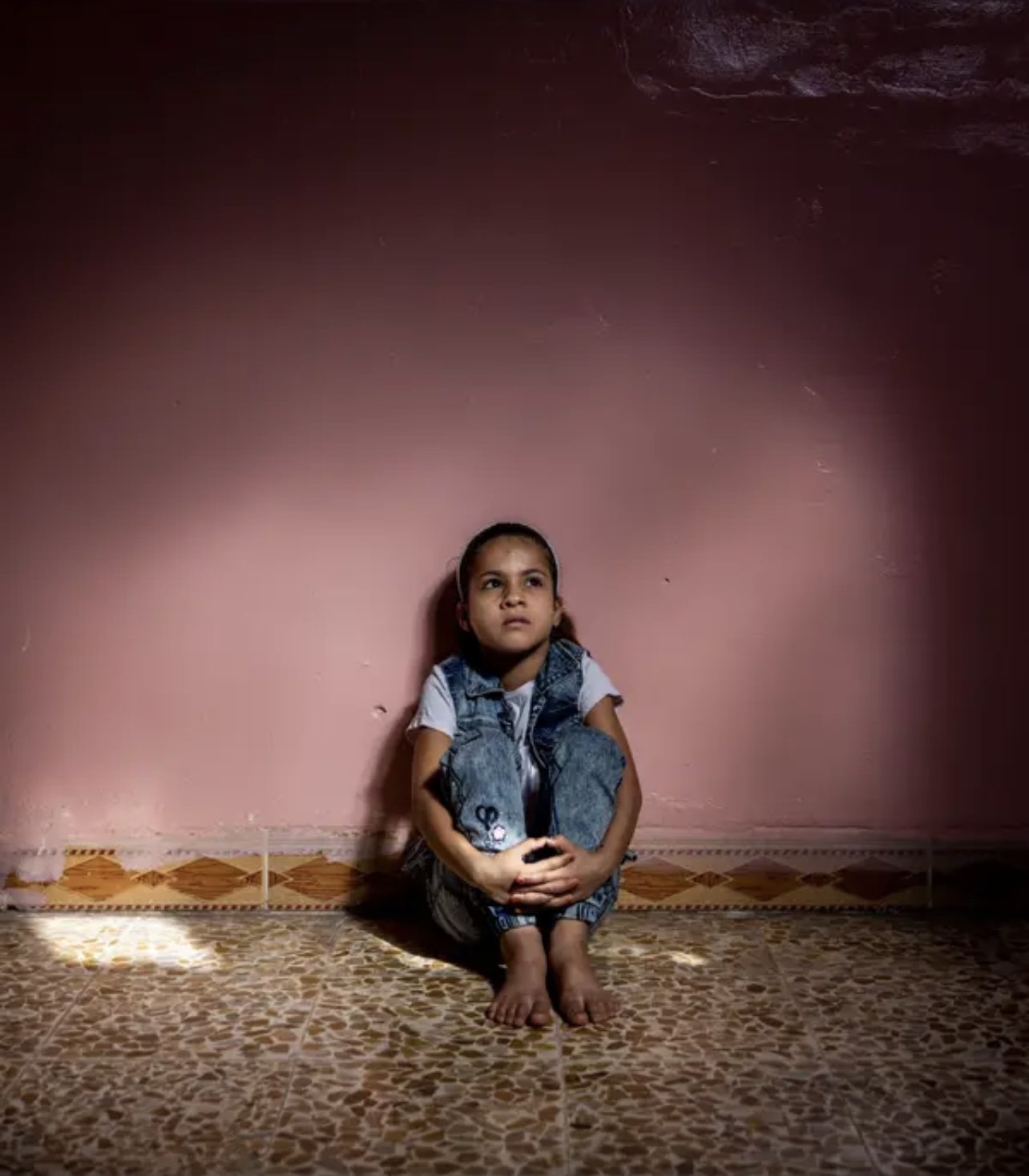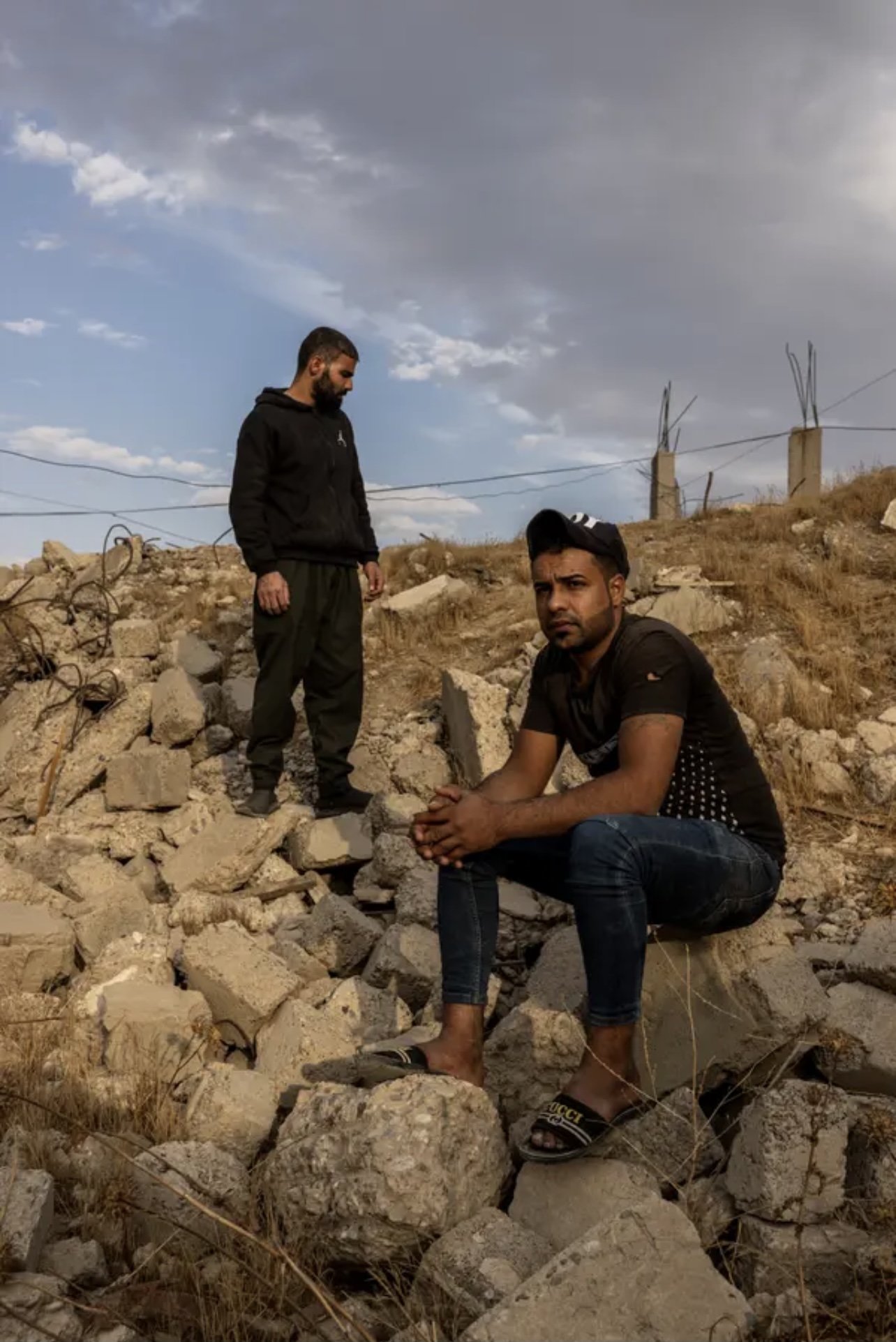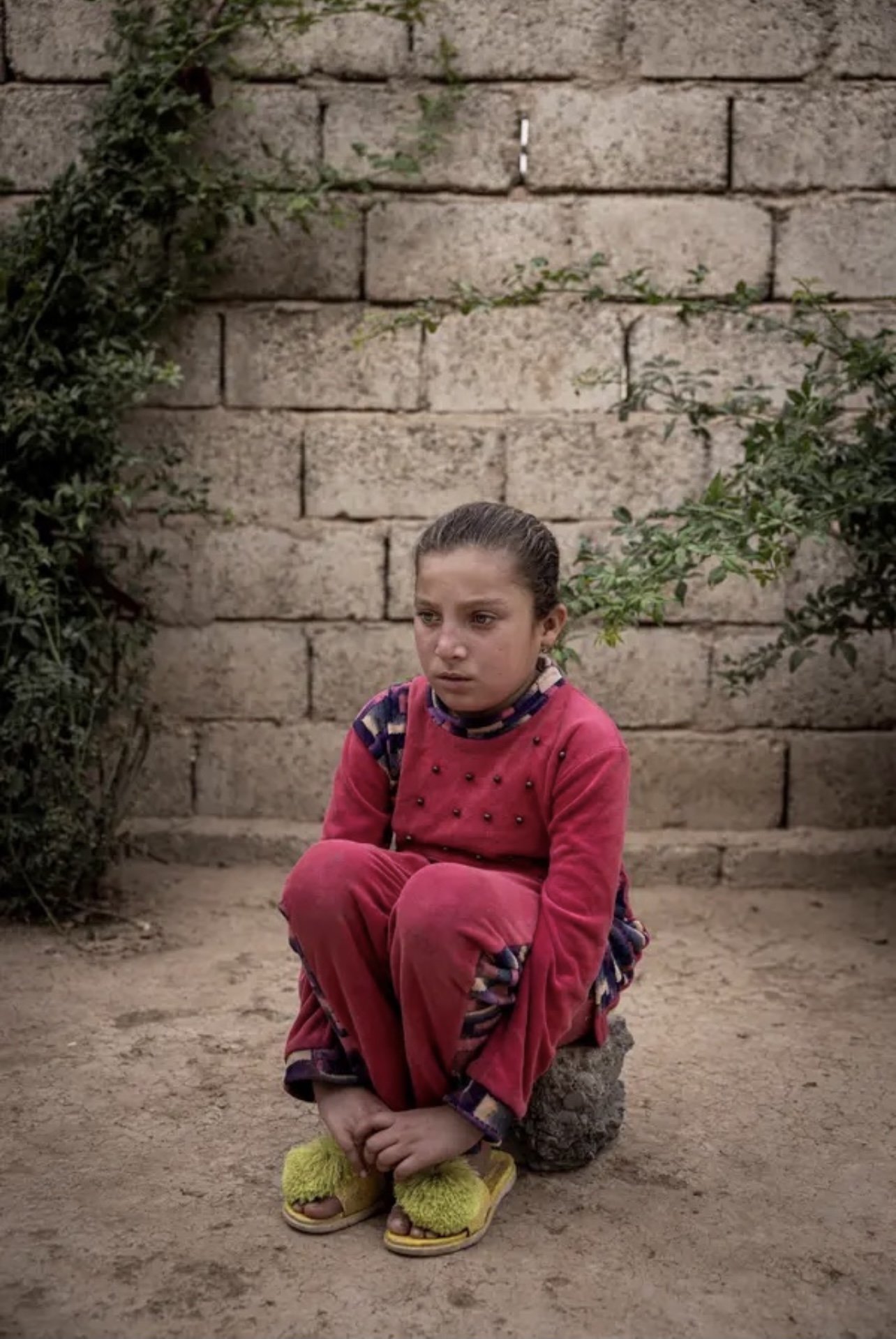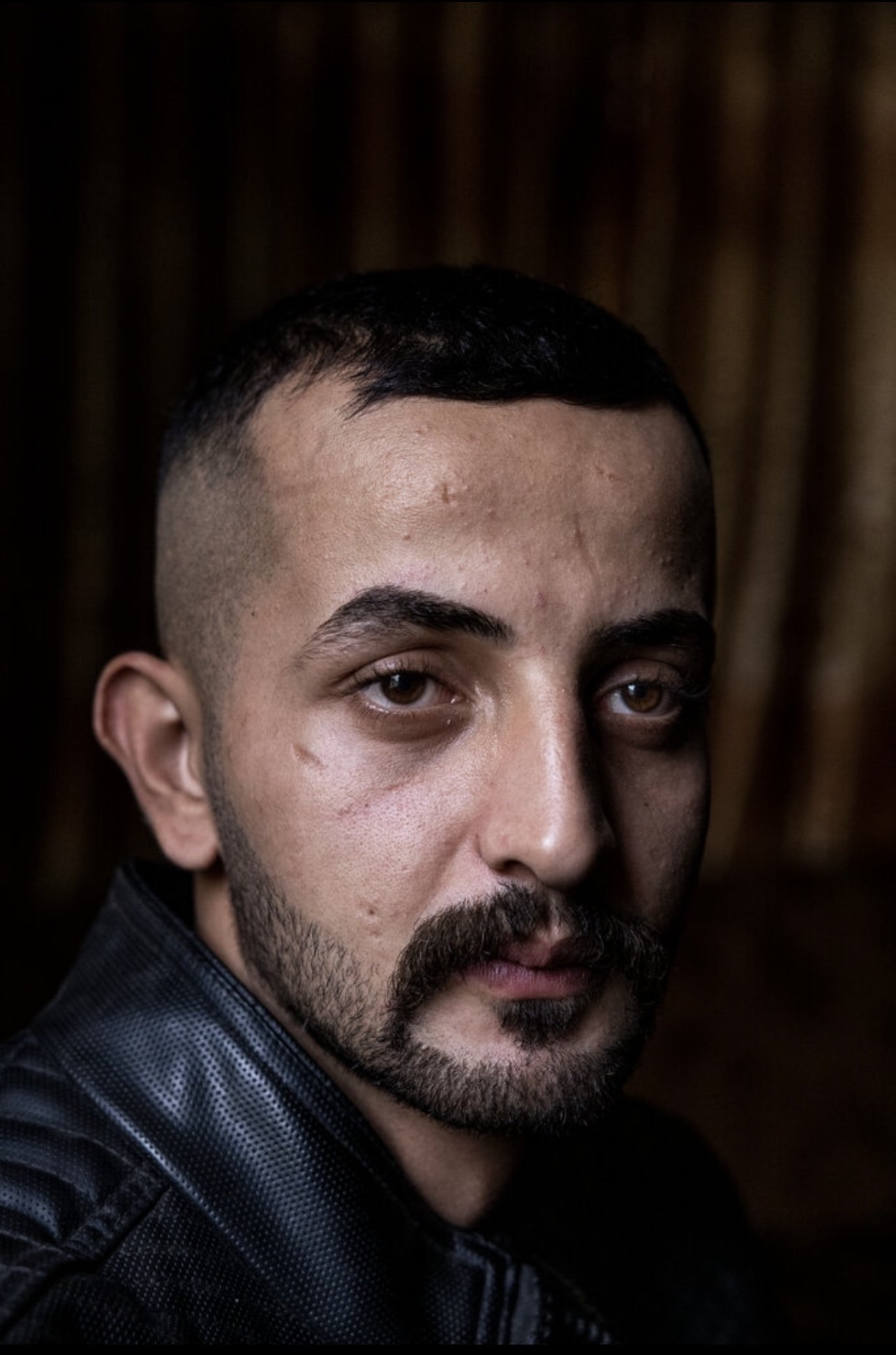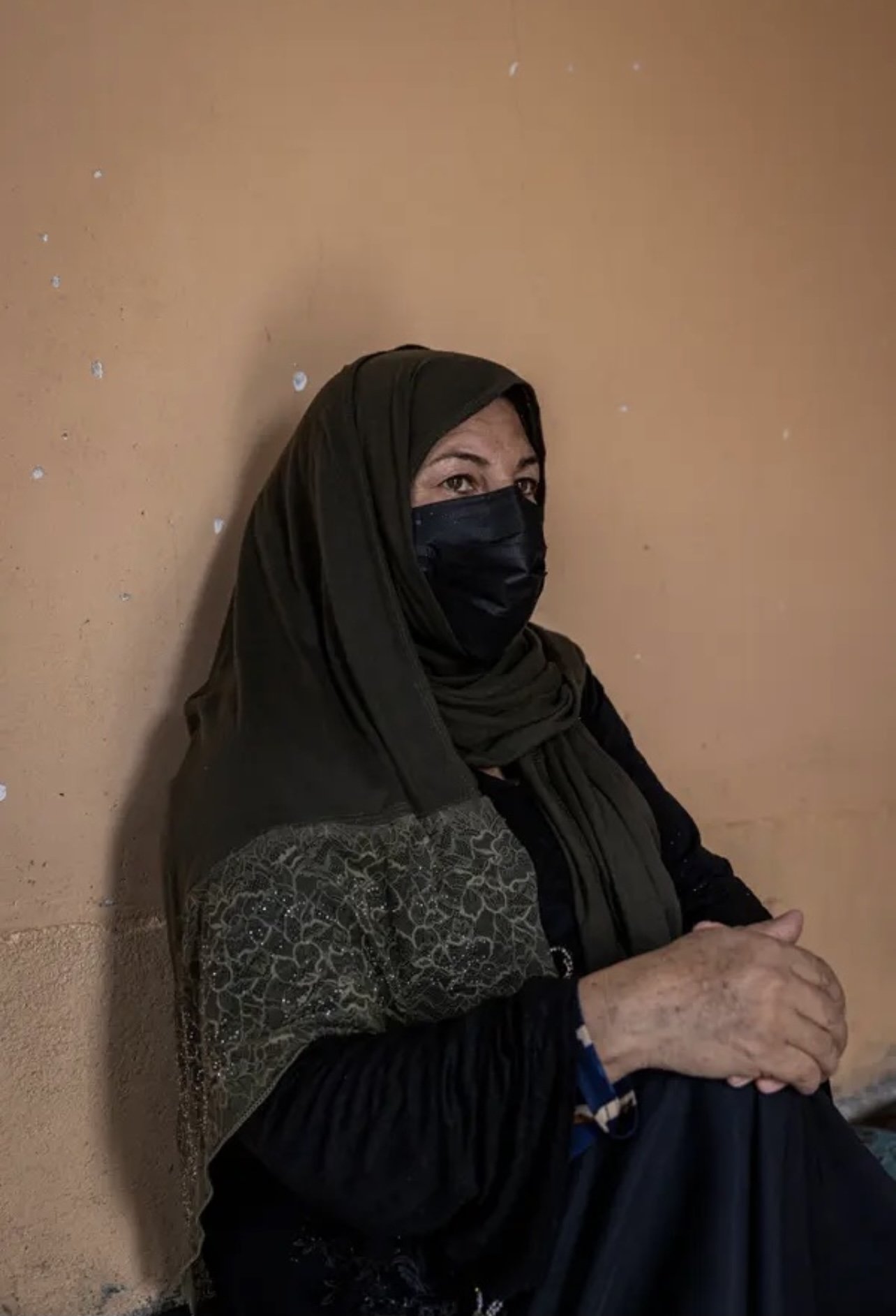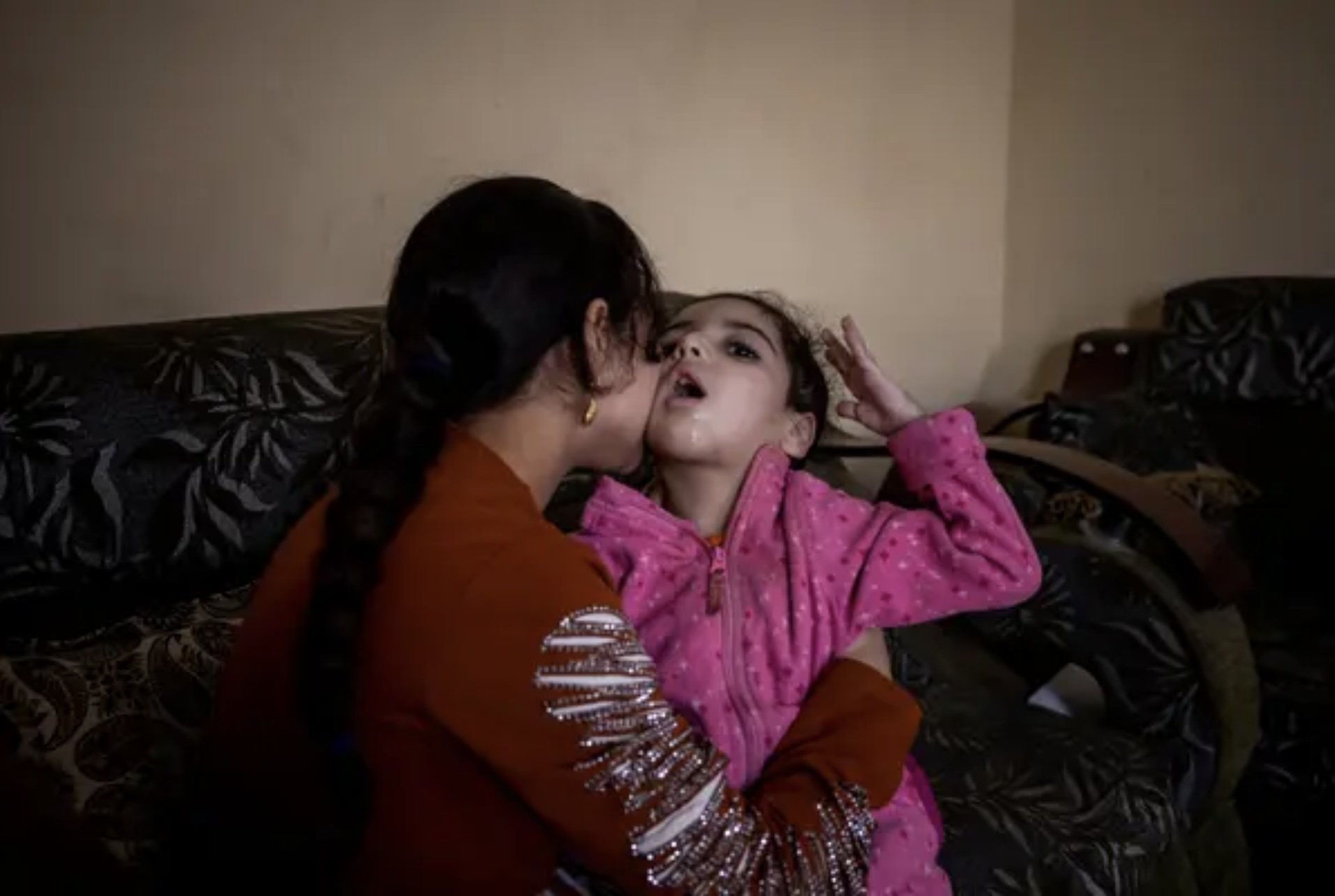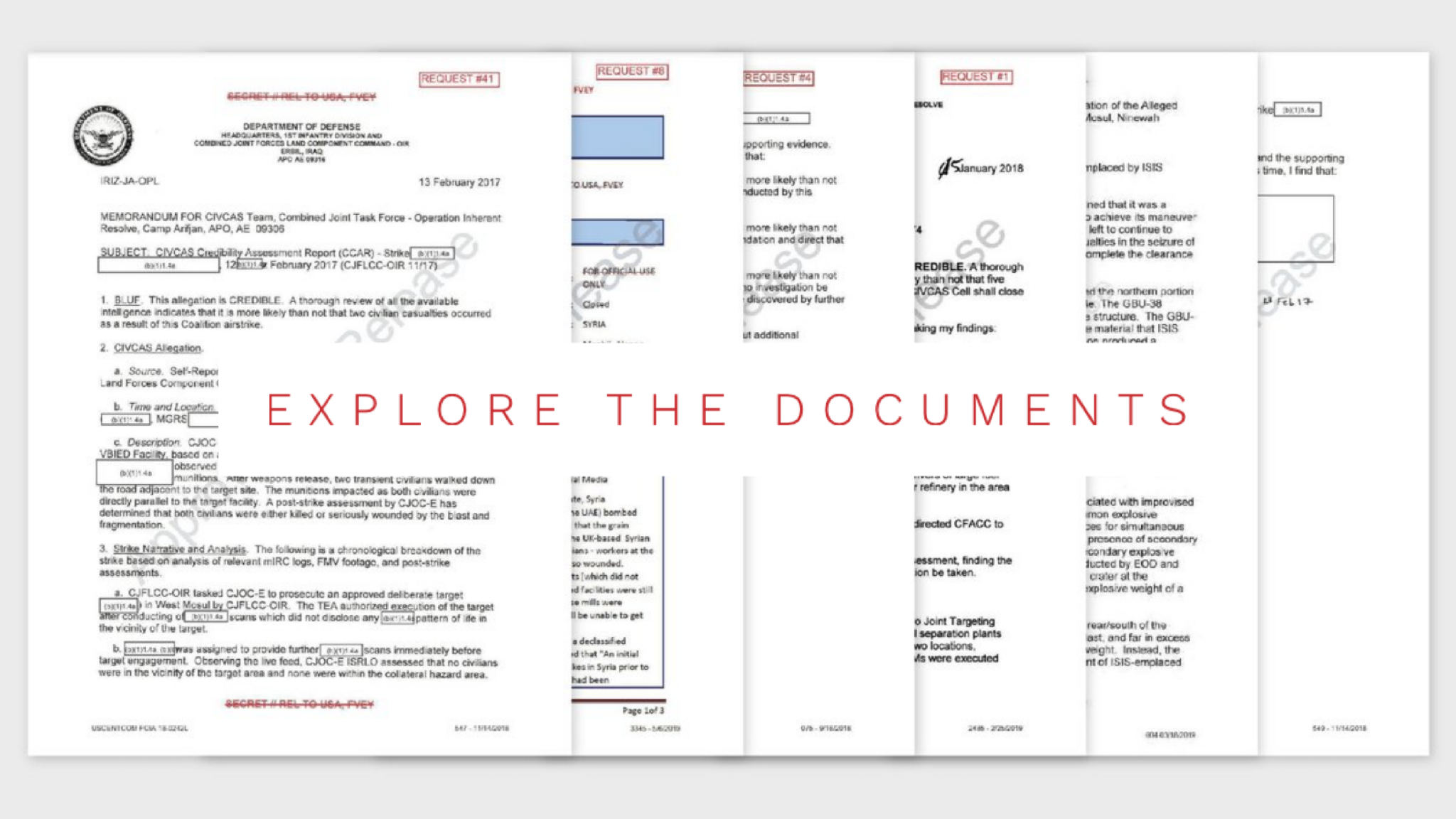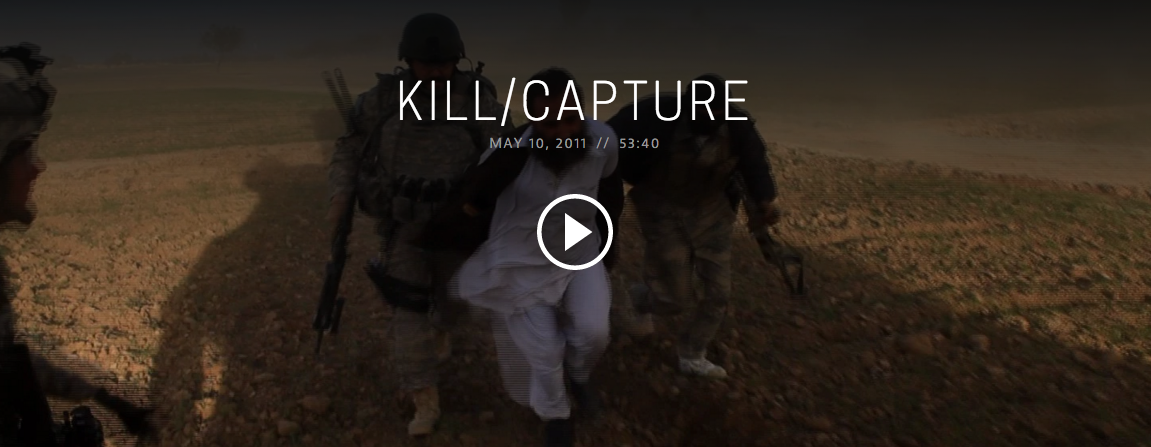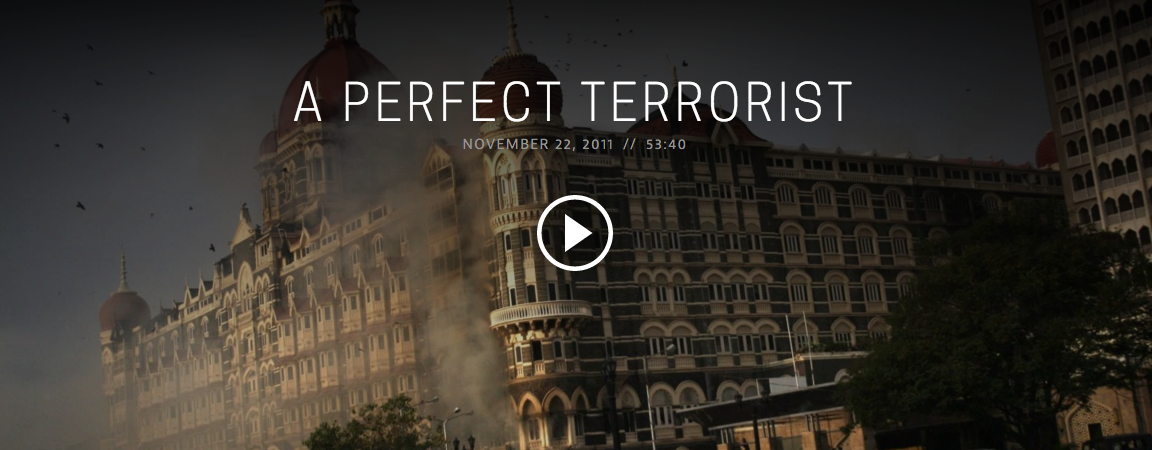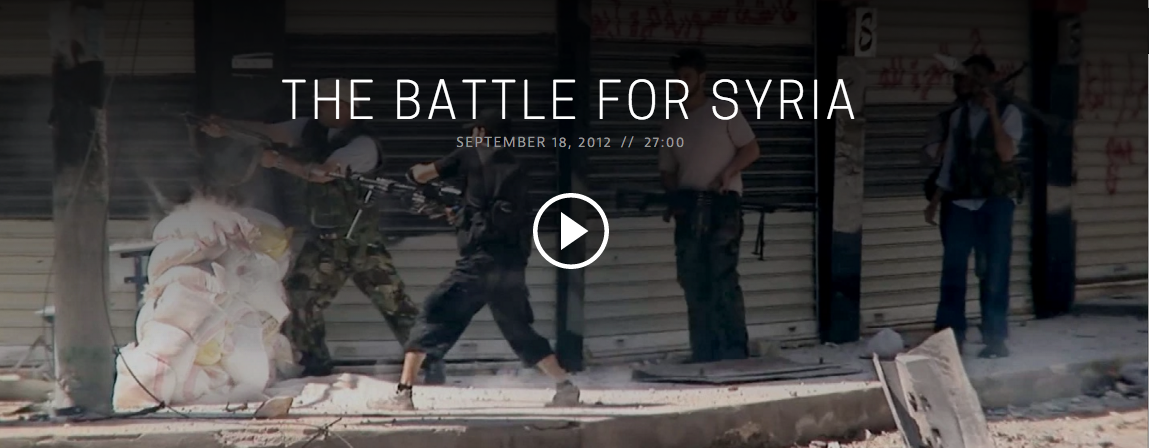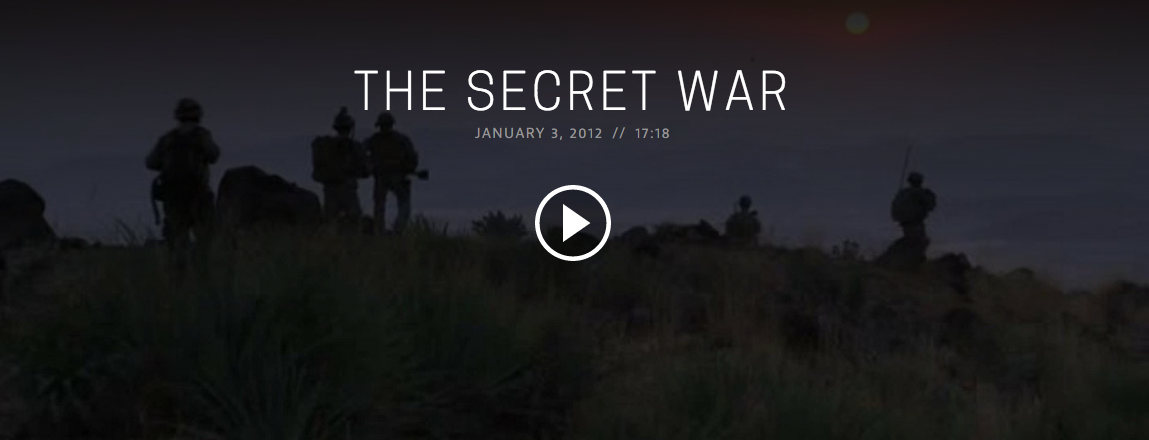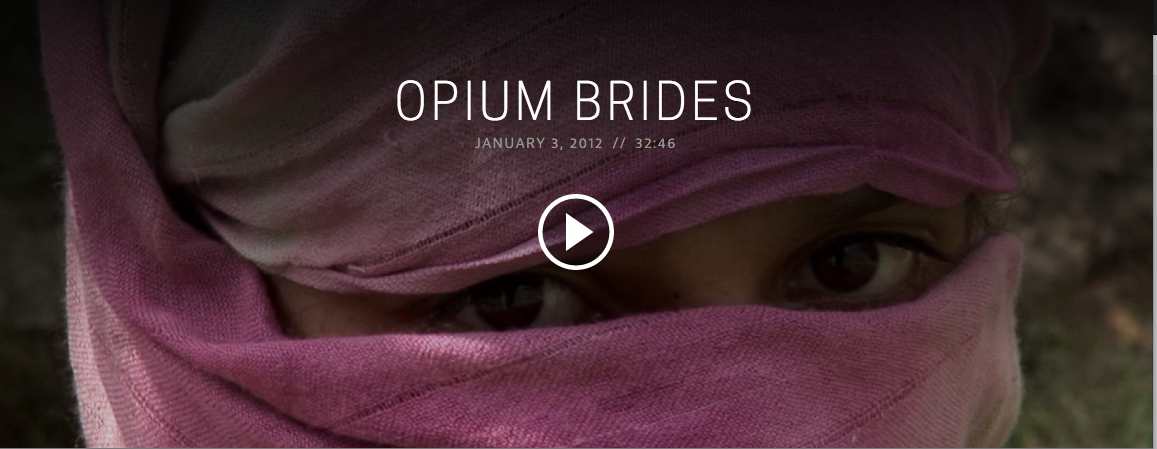IN WEST BANK RAIDS, PALESTINIANS SEE ECHOES OF ISRAEL’S GAZA WAR
Across the Israeli-occupied West Bank, Palestinians living in refugee camps provided extensive testimony that Israeli forces are adopting tactics similar to the ones they are deploying in Gaza, including the use of Palestinians as human shields, a violation of international law. For more than a year, Israel has carried out dozens of airstrikes — many of which have killed children — hit ambulances and rescue workers trying to reach the injured, and systematically destroyed critical civilian infrastructure, roads, electricity networks, water and sewage lines, mosques, homes, and businesses.
Winner of the Pulitzer Prize in International Reporting
A years-long, multi-part investigation IN THE NEW YORK TIMES based on more than 1,300 military records, ground reporting from the sites of more than 100 civilian casualty strikes in Iraq, Syria & Afghanistan, and scores of interviews
MORE FROM THE FILES
Documents Reveal Basic Flaws in Pentagon Dismissals of Civilian Casualty Claims
Documents on Military Processes and Procedures & Glossary of Terms
Military Investigation Reveals How the U.S. Botched a Drone Strike in Kabul
IMPACT
The investigation spurred impact across government and civil society, including direct action from the Secretary of Defense, who ordered military officials “improve upon efforts to protect civilians” during U.S. combat operations. Congressional leaders also proposed bicameral legislation to overhaul systemic problems identified in the Civilian Casualty Files, including The Protection of Civilians in Military Operations Act (POCIMO) and The DoD Civilian Harm Transparency Act (CHTA). The reporting also triggered a hearing in the Senate Judiciary Committee on drone strikes — the second only in its history on this subject — and was also cited in multiple letters by Congressional leaders and civil society groups. The publication of records has also spurred ongoing scholarship by scholars of law, political science, international relations and human rights, as well as advocacy efforts on behalf of victims and survivors.
Awarded the Pulitzer Prize in International Reporting
“For courageous and relentless reporting that exposed the vast civilian toll of U.S.-led airstrikes, challenging official accounts of American military engagements in Iraq, Syria and Afghanistan.”
Katherine Boo, co-chair, singled out the work of Azmat Khan: “After using public records laws and litigation to amass an archive of deaths from air strikes, Khan courageously tracked down families of victims to prove what the U.S. government didn’t find in its interest to acknowledge: that its high-tech wars had killed thousands of civilians with impunity, contradicting American values and jeopardizing its safety and standing in the world. Work of this caliber honors the prize.”
+ 2022 National Magazine Award for Public Interest journalism
JUDGES: "Judges' Comments: "Azmat Khan’s years-long project for The New York Times Magazine examined the cavalier use of aerial bombardment by the United States, illuminating the human cost of this nation’s wars in the Middle East."
+ 2022 Polk Award for Military Reporting
+ Overseas Press Club Roy Rowan Award for Investigative Reporting
JUDGES: "A powerful investigation that revealed how a highly touted and ostensibly sophisticated remote warfare system developed by the Pentagon was riddled with flaws and beset by faulty decision-making, leading to the bombing deaths of innocent civilians in Iraq, Syria and Afghanistan. The heart of the series was the remarkable work of Azmat Khan, who over years painstakingly assembled a unique trove of military reports on civilian casualties caused by U.S. bombings and then along with her Times colleagues interviewed bombing survivors and witnesses, often at great personal risk. Drawing on eyewitness accounts, hospital records, death certificates, even tombstones, in visits to more than 100 civilian casualty sites, Khan and her colleagues were able to construct the story of air strikes that had gone terribly wrong."
+ John Seigenthaler Courage in Journalism Award
JUDGES: "...a comprehensive evaluation of civilian casualties in places like Afghanistan, Iraq and Syria. It showed the continual errors by the US military in bombing civilians rather than military targets. Khan's analysis was frustrated by the US government, forcing her to file suit against the Pentagon. And the US Central Command for this comprehensive analysis completed in dangerous conflict zones."
+ Investigative Reporters and Editors Awards - Finalist in Print/Online - Division I
JUDGES: "Through exhaustive use of open records requests, dogged reporting and an immense interactive database of primary documents, this project revealed thousands of previously unreported civilian casualties — many of them children — that were the result systemic failures of accountability within the US military."
"Between April 2016 and June 2017, we visited the sites of nearly 150 airstrikes across northern Iraq, not long after ISIS was evicted from them. We toured the wreckage; we interviewed hundreds of witnesses, survivors, family members, intelligence informants and local officials; we photographed bomb fragments, scoured local news sources, identified ISIS targets in the vicinity and mapped the destruction through satellite imagery. We also visited the American air base in Qatar where the coalition directs the air campaign. There, we were given access to the main operations floor and interviewed senior commanders, intelligence officials, legal advisers and civilian-casualty assessment experts. We provided their analysts with the coordinates and date ranges of every airstrike — 103 in all — in three ISIS-controlled areas and examined their responses. The result is the first systematic, ground-based sample of airstrikes in Iraq since this latest military action began in 2014."
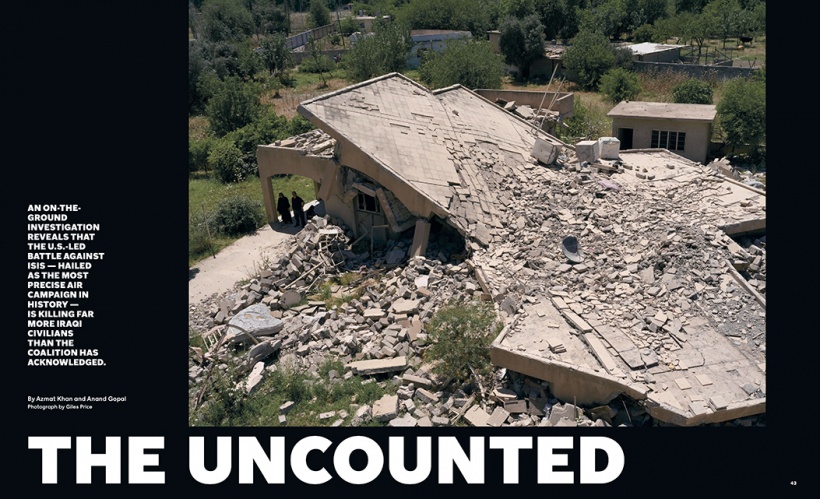
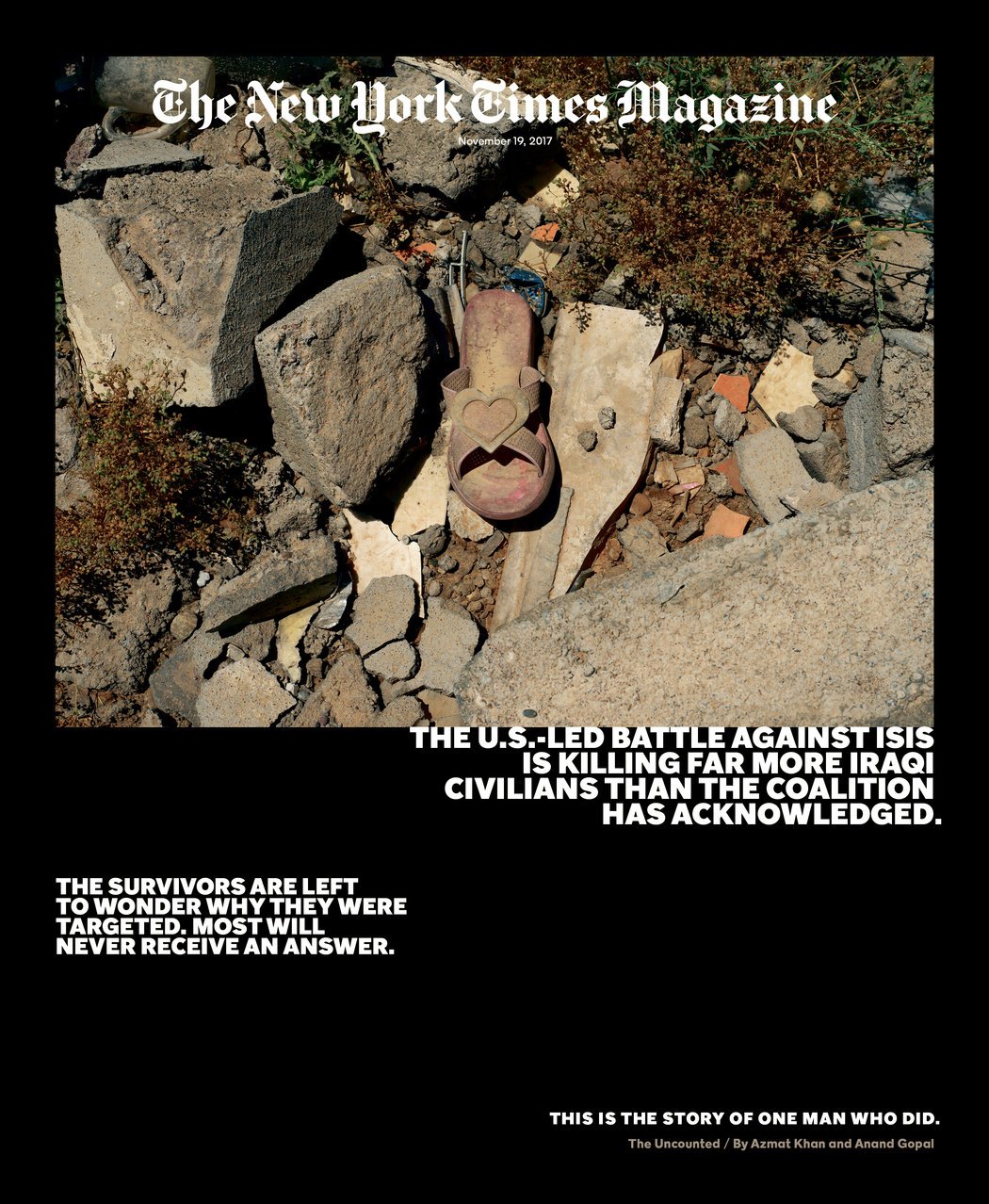
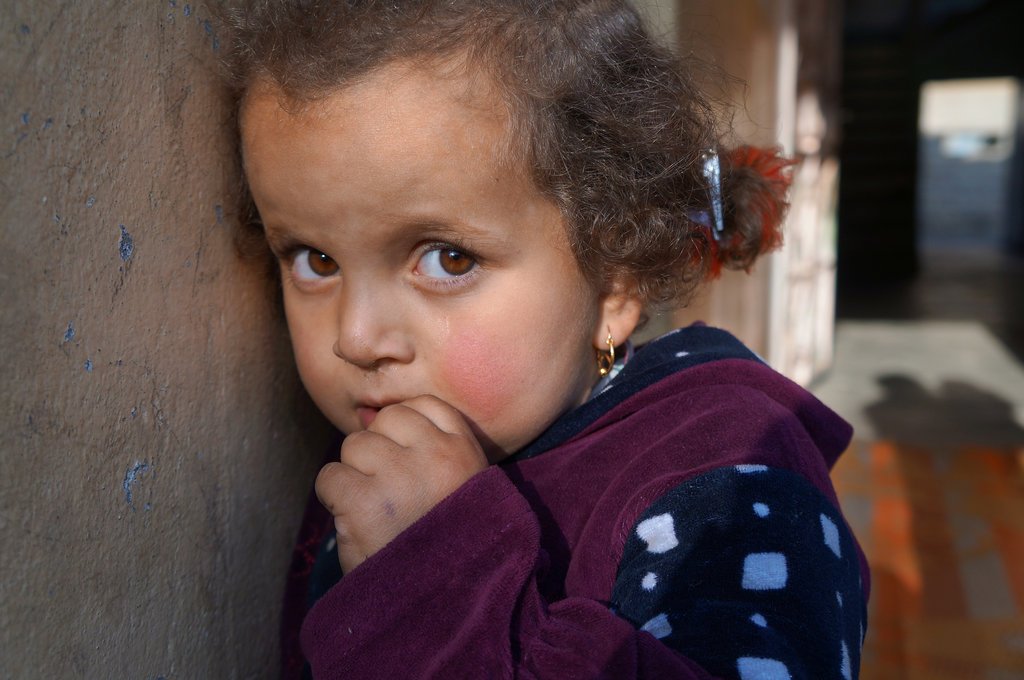
U.S. military officials say the anti-ISIS air war in Iraq and Syria is the most precise aerial campaign in the history of warfare. But an on-the-ground investigation by Azmat Khan and Anand Gopal for The New York Times Magazine reveals that the air war has been significantly less precise than the U.S.-led coalition claims.
The investigation uncovered that one in five of the coalition strikes identified resulted in civilian death, a rate more than 31 times that acknowledged by the coalition. It is at such a distance from official claims that, in terms of civilian deaths, this may be the least transparent war in recent American history. The reporting revealed a consistent failure by the coalition to investigate claims properly or to keep records that make it possible to investigate the claims at all. While some of the civilian deaths documented were a result of proximity to a legitimate ISIS target, many others appear to be the result simply of flawed or outdated intelligence that conflated civilians with combatants. In this system, Iraqis are considered guilty until proved innocent. Those who survive the strikes remain marked as possible ISIS sympathizers, with no discernible path to clear their names. (The investigation was also the subject of a three-part podcast series on The Daily, produced by Annie Brown. Listen to Part I, Part II, and Part III.)
Within a week of publication, the investigation prompted immediate response. Senator Patrick Leahy of Vermont called on the Department of Defense to make payments to civilian survivors of U.S. combat operations and to commission a panel of civilian casualty documentation experts to conduct a review of intelligence and targeting procedures. And the New York Times Editorial Board called on Congress to demand true accountability & transparency on civilian casualties, because “Americans need to understand the full cost and consequences of military actions undertaken in their names.” Ultimately, the investigation resulted in a shift in sentiment among officials in the Department of Defense and the first Congressionally-mandated standards for civilian casualty policy, passed in Section 936 of the National Defense Authorization Act for Fiscal Year 2019.
+ 2018 National Magazine Award for Reporting
JUDGES: "Meticulously reported and movingly told, this investigation of the U.S.-led campaign against the Islamic State found that far more civilians had been killed by airstrikes than the Pentagon would acknowledge. The judges deemed this a stunning and important work of journalism."
+ 2018 Overseas Press Club Ed Cunningham Award
JUDGES: "Azmat Khan and Anand Gopal spent almost two years visiting about 150 bomb sites in northern Iraq, often at great personal risk, for this powerful story that showed civilian casualties caused by U.S.-led coalition airstrikes were considerably higher than previously reported. With a compelling main character in Bassim Razzo, whose home and family in Mosul were obliterated, indefatigable sleuthing by Khan and Gopal that challenged U.S. statistics, and an impressive use of photography and videography, “The Uncounted” provided a horrifying accounting of the true cost of America’s war."
+ 2018 Hillman Prize for Magazine Journalism
JUDGES: "In one of the world’s deadliest war zones, reporters Azmat Khan and Anand Gopal teamed up to investigate, document, and report the true civilian death toll of the U.S.-led war against ISIS. Their shocking findings revealed that the number of civilian deaths due to airstrikes is largely underreported by the American-led coalition, and that there has been a consistent failure by the coalition to investigate claims or to make previously mandated “sympathy payments” to survivors. ... Khan and Gopal’s disturbing findings are the result of two years spent in Iraq producing the data themselves through hard, on the ground reporting. They visited the sites of nearly 150 airstrikes across northern Iraq and interviewed hundreds of witnesses, family members, intelligence informants, and local officials. They photographed bomb fragments, scoured local news sources, and mapped the destruction through satellite imagery. They built sophisticated databases and maps based on hundreds of points they visited in order to compare their data against the coalition’s numbers. It was a level of research that had never been conducted before – not by the U.S. government, the United Nations nor any NGO. ... The overall result is an investigation into the U.S.-led air war against ISIS that is unlike any other. These journalists stepped up to do what the governments and institutions did not."
+ Deadline Club Award for Magazine Investigative Reporting
JUDGES: "The Uncounted' was a standout effort that earned a unanimous vote as best in class. This impressive piece of journalism was essentially an intelligence gathering effort, with the authors fusing data from a variety of sources to account for many unacknowledged civilian deaths caused by the US bombing campaign against Islamic State in northern Iraq. Door-to-door reporting in war-ravaged Mosul provided intelligence even the US military seemed to lack, as it conducted what it called “the most precise air campaign in history.” Khan and Gopal proved otherwise in prose both gripping and revelatory. By building the broader story around the narrative of one particular victim, the authors drew readers in and kept them rapt. We also appreciated videos and other graphical elements, in the electronic version of the story, that could have come from a Pentagon briefing and enhanced the reader’s understanding of the story. Taut and vivid, this is the best piece of journalism the judges have encountered in a considerable while."
+ 2018 One World Media Print Award
JUDGES: "This piece of work set out to prove the inconsistencies between the reported number of civilian deaths by US drones in Iraq, and the actual number. It was an ambitious project spanning two years of work, but it achieved not only an exclusive revelation that uncovered a deep injustice whereby people are being needlessly killed, not compensated and worse, deemed sympathisers with ISIS until proven innocent, but it sparked a change in how the US deals with such casualties. We were deeply impressed at how meticulously and tirelessly the reporters worked to uncover facts and speak to people on the ground, but also how they gained access to the US military. There was excellent use of multi-media throughout. It is a long read but compelling from paragraph to paragraph, beautifully told, and no one can failed to be moved by the story of Basim Razzo, who lost his wife and daughter, and is the key protagonist in the feature. This set the gold standard for how this type of journalism should be covered.”
"The American effort to educate Afghanistan’s children was hollowed out by corruption and by short-term political and military goals that, time and again, took precedence over building a viable school system. And the U.S. government has known for years that it has been peddling hype. ... What went wrong is a story of overhyping in Washington, of noble intentions going astray in a society America did not understand, and of the pitfalls of using humanitarian aid and 'soft power' to support military and political goals."
Throughout America’s long, bloody, and frustrating war in Afghanistan, the U.S. government has trumpeted one shining victory: education. Azmat Khan set out across Afghanistan — starting in the birthplace of the Taliban — and worked her way around battlefield provinces to investigate those claims, the first time any member of the media had done so. Based on visits to schools across the country, internal U.S. and Afghan databases and documents, and more than 150 interviews, the investigation found that in the areas where most U.S. funding was concentrated — territories that were key to winning the war — American efforts have fallen woefully short of the grand claims the government made, claims that it knew were false.
After publication, reaction was swift: Sen. Bob Casey of Pennsylvania wrote USAID officials to say he was “particularly disturbed” by the findings, and asked the agency for detailed monitoring and evaluation plans. The Special Inspector General for Afghanistan Reconstruction cited the report in its semiannual report to Congress. And in Afghanistan, President Ashraf Ghani appointed a nine-member commission to investigate corruption in the Ministry of Education.
The investigation was awarded the 2016 Deadline Club Award for Independent Digital Reporting, SAJA's 2016 Daniel Pearl Award for Outstanding Reporting on South Asia, recognized as a Livingston Award finalist in International Reporting and by ProPublica as one of the best investigations of 2015. It was also translated & published in Japanese.
More About The Story & Its Impact →
SAJA 2016 Daniel Pearl Award for Outstanding Reporting on South Asia →
Livingston Award Finalist in International Reporting →
Judges Comments from the 2016 Deadline Club Awards →
JUDGES: "The United States trumpets education – particularly of girls – as one of its key victories during the war in Afghanistan. But Azmat Khan’s exhaustive reporting reveals otherwise. Many of the schools Khan visited during her investigation for BuzzFeed News have never seen a single student or teacher. In a category dominated by big-team reporting, the judges were especially impressed by Khan’s initiative as a solo practitioner. In fact, she was the first member of the Western media to follow the trail of a billion-plus dollars spent by the U.S. on education-related funding in Afghanistan, piecing together a well-written narrative from contractors, aid workers and warlords. Khan also conducted more than 150 interviews for her piece, many of them on-the-ground in one of the most dangerous countries in the world. The payoff? Khan’s work had a clear impact, prompting detailed monitoring of USAID as well as a commission to investigate corruption in Afghanistan’s Ministry of Education."
What does it look like when a government drops bombs on its own people?
For PBS FRONTLINE, Azmat Khan produced this 36-minute immersive film taking viewers inside in the village of Al Bara as Syrian jets drop bombs on homes 300 meters away from filmmaker Olly Lambert. You'll witness the chaos on the ground as villagers try to rescue family and friends trapped under the rubble, the bombing’s effect on ordinary civilians whose lives literally have just been blown apart, the palpable fear when the government jets return for a second bombing run, and the ensuing calls for revenge that illustrate the country’s descent into chaos.
The film was nominated for a 2014 Emmy Award in New Approaches to Documentary Film.
In January 2011, millions of Egyptians took to the streets to protest Hosni Mubarak's regime. On the ground for PBS FRONTLINE, Azmat Khan field produced an investigation into the Muslim Brotherhood's underreported role in this revolution. The resulting film, The Brothers, and its related digital coverage, Revolution in Cairo, received an Emmy award for Outstanding Coverage of a Breaking News Story in a News Magazine, as well as an Overseas Press Club citation for Best Online Coverage of Breaking News.



